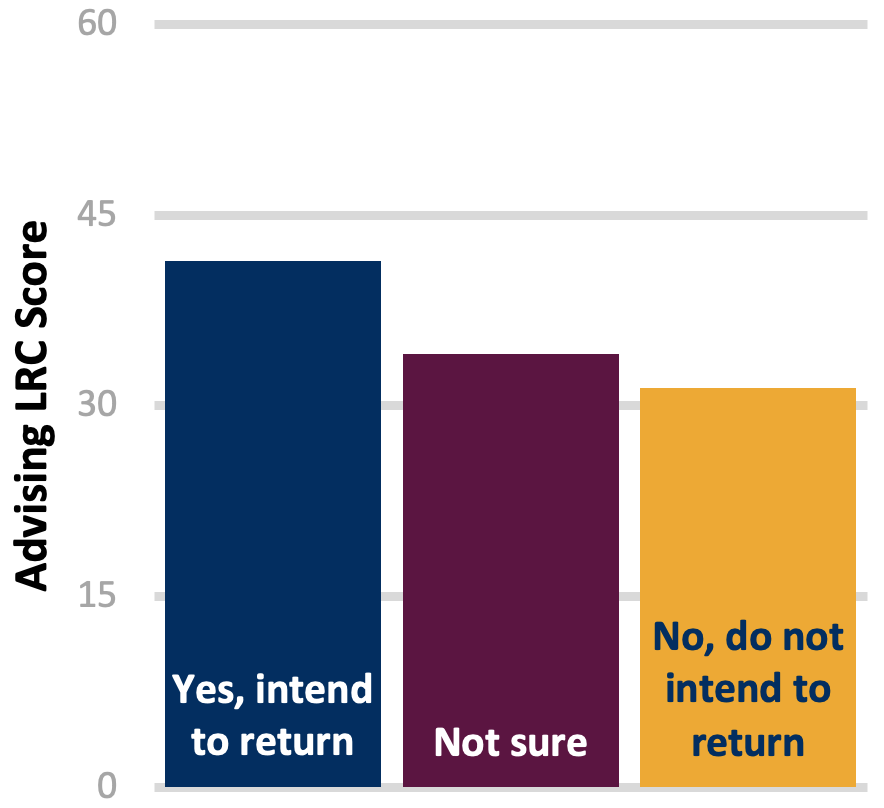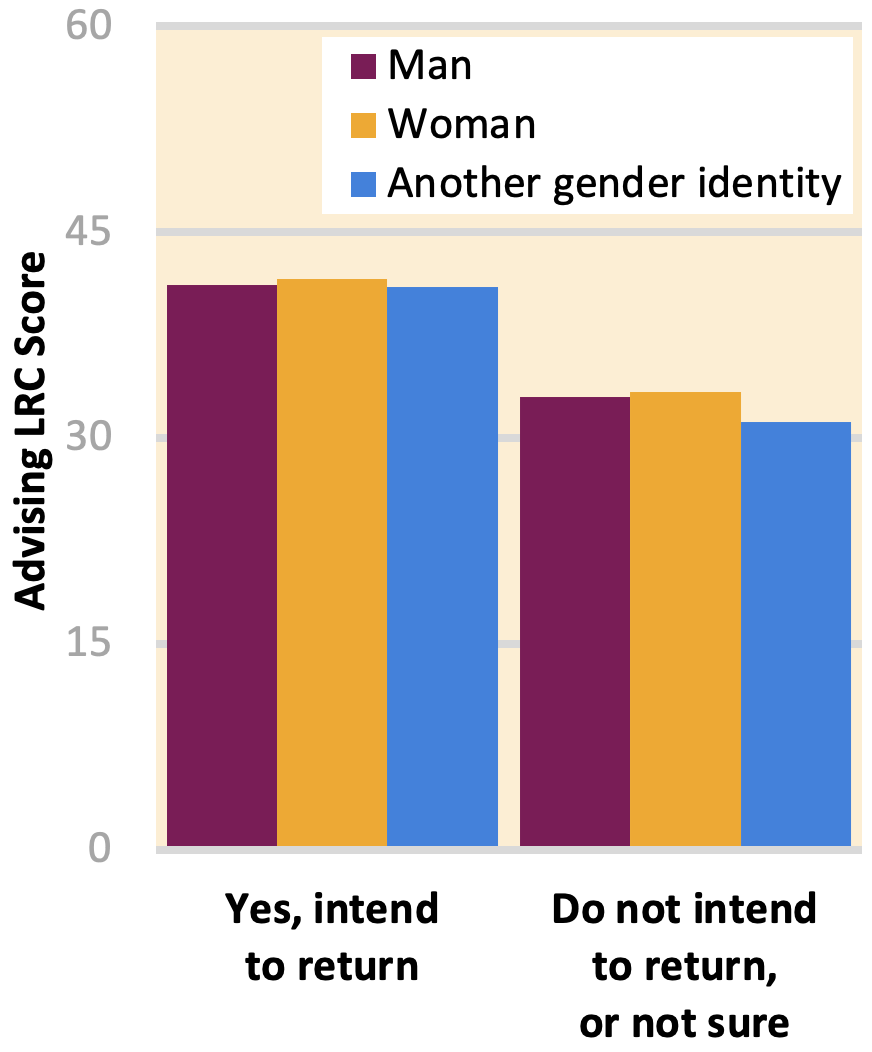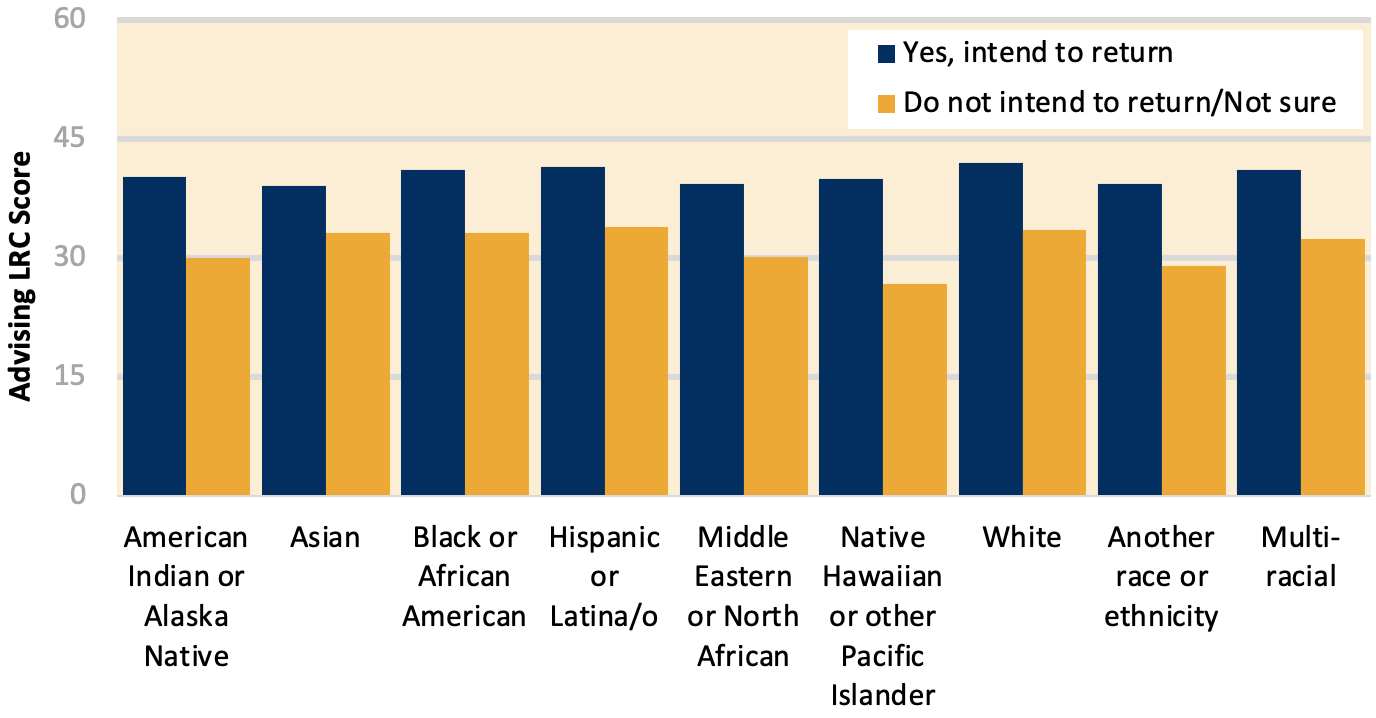Improving first-year retention is a major challenge for many institutions. When asked near the end of the first year, most students express an intent to return for their second year. However, students who intend to return had higher Advising LRC scores than their peers who do not intend to return or are unsure (Figure 1). Overall, the amount of listening, respecting, and caring experienced by those who intend to return is significantly higher than those who responded "not sure" or "no" (do not intend to return) (p < .001). These results suggest insitutions should investigate their student advising experiences closely to further undertand their specific persistence factors.
The Relationship of Advising LRC with Intentions to Persist




